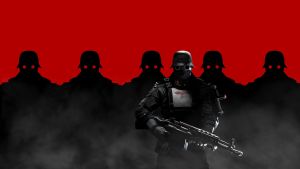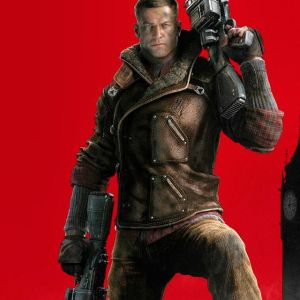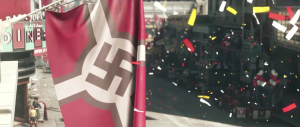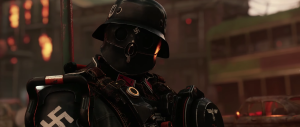
Nazis have been a popular choice of villains in video games for a while. They are an especially popular choice in first-person shooter games; however, most of those games portray Nazis as mere cannon fodder. One game series that has been widely known for using Nazis as their main villains is the “Wolfenstein” series.
The “Wolfenstein” series has focused on the Nazis trying to use supernatural and occult forces to help win World War II and the series protagonist, William Joseph “B.J.” Blazkowicz, must fight them off.
However, when “Wolfenstein: The New Order” was released in 2014, the series took a different turn by focusing on an alternate history. In this timeline, the Axis powers have won World War II and the Nazis have expanded their reach across the globe.
The sequel to “The New Order,” “Wolfenstein II: The New Colossus,” was released on Friday, Oct. 27 and takes place in a Nazi-controlled America. There, B.J. and his resistance movement, the Kreisau Circle, hope to team up with the American resistance to ignite a second American Revolution and get payback on the Obergruppenführer, Irene Engel, for murdering their leader, Caroline Becker.
However, despite not facing controversy in the past, “New Colossus” received a ton of criticism and controversy throughout its marketing run.

Before the game was released, Wolfenstein’s marketing always used the hashtag #NoMoreNazis in its social media posts; however, there was one tweet that sparked criticism, which included a video of Nazi soldiers marching down the streets of Roswell, N.M. as the words “Not my America” flashed on the screen.
In addition, “New Colossus” marketing has used a bunch of other slogans and hashtags that have tied into current events. For instance, their main campaign slogan is “Make America Nazi Free Again,” which is a play on President Trump’s campaign slogan “Make America Great Again.”
Additionally, the hashtag #punchanazi, has been referenced in tweets related to “Wolfenstein” as well as a Twitter ad where B.J. punches a Nazi soldier in the face. This is related to a viral video where Neo-Nazi leader Richard Spencer was punched in the face by a masked man on Trump’s inauguration day, Jan. 20.

Psychology and criminology double major Nick Erick has played “New Colossus,” “The New Order” and “Old Blood” and greatly enjoyed playing those games. He saw the controversy surrounding “New Colossus’” marketing and felt that it was unnecessary.
“I feel that the actual controversy came from Nazis and alt-right members because they portrayed their ideology for what it was,” Erick said.
Erick also pointed out that people do not like it when their media is connected to politics, but in a way, all media is political. For example, the story of Superman is an immigrant story about a humanoid alien who came to Earth as a baby and people have questioned whether he should live among them.
River Hill High School junior Nick Mattson has played “The New Order” and “New Colossus” as well and does not consider the Nazism in those games controversial.
“I don’t really care. It’s just a game,” he said.
Junior history major Malachi Purnell brought up that Nazis have been the main villains of not just video games, but other various forms of American pop culture, such as early Wonder Woman and Captain America comics that were set in World War II.
Purnell also noted that Wolfenstein’s portrayal of the effects of the Nazis winning World War II would not be entirely accurate from a historical perspective.

“It is impossible to predict what the world would have been like had Germany won World War II,” he said. “With the elimination of both Britain and the USSR as superpowers as well as the conquest of most of Europe, combined with the likely consequent success of the Japanese in Eastern Asia and the Pacific, one could not begin to unpack the changes.”
Despite the surprise controversy of Nazism in “Wolfenstein,” fans agree that the controversy was undeserved and unnecessary.
“I don’t find it controversial to be against Nazis,” Erick said. “Any decent human beings wouldn’t find it controversial to be against the Nazi ideology.”


